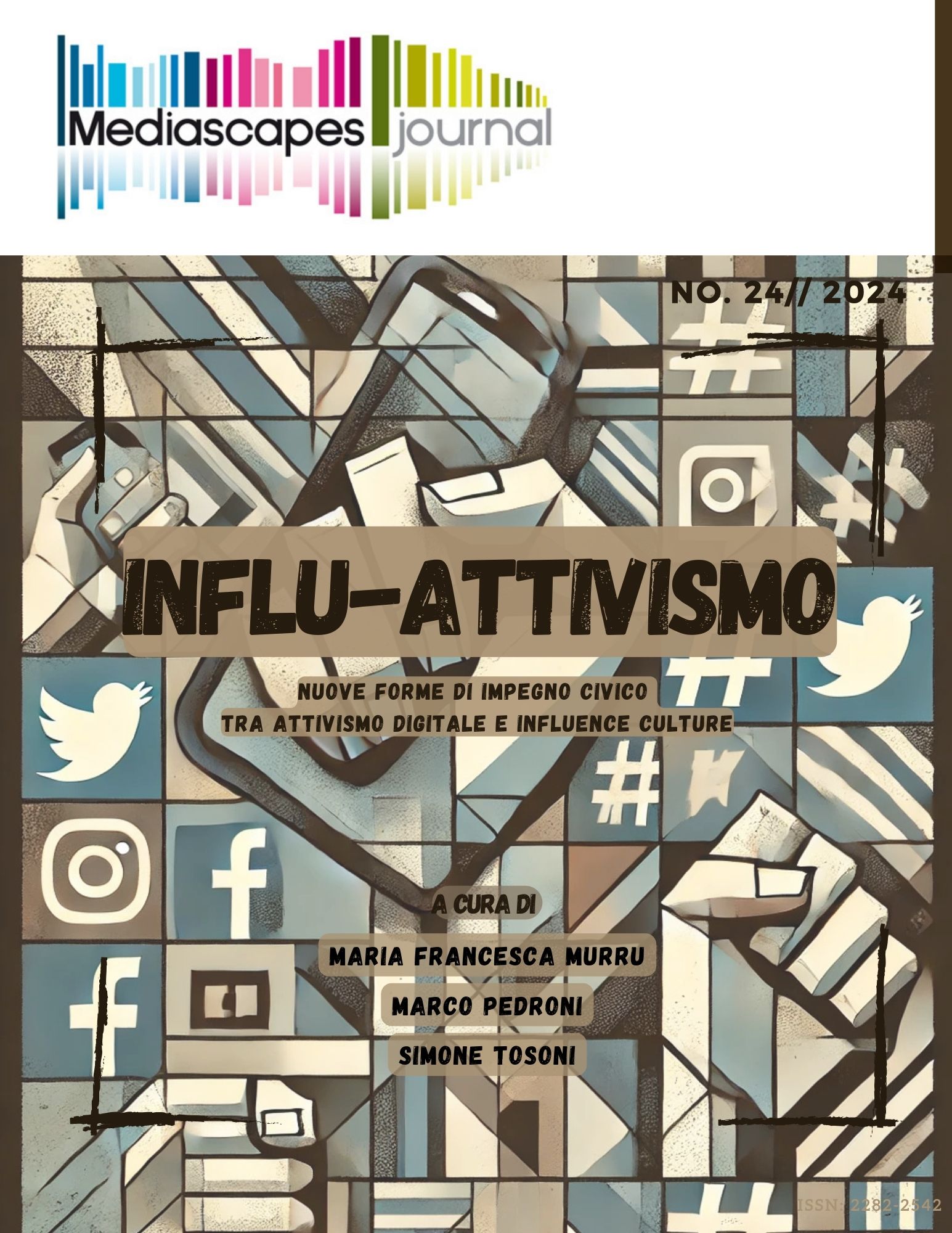Fare femminismo online
Le creator femministe su Instagram tra posizionamenti individuali, istanze di cambiamento e strategie di resistenza
Keywords:
digital feminism, creators, Instagram, cultural production, online activismAbstract
The emergence of new feminist figures on platforms has recently garnered significant attention, especially because of the increasingly evident overlap between feminist discourses and neoliberal market logics, raising questions about the potential repercussions on the "fourth-wave" of feminist movement. Based on in-depth interviews with Italian Instagram creators who identify as feminists, this study aims to delve into the meanings that “feminist creators” attribute to their online practices, focusing on their positioning within feminist political practice. The research concentrates on the stance of these figures towards online feminist activism to better understand their perception of their role within it, highlighting the complex connections between platforms and cultural production and for collective movements. Results show how the label of "activist" often constitutes a challenging concept to engage with, precisely due to the economy of visibility characterizing platforms such as Instagram. Despite being preliminary findings from an ongoing study, crucial dimensions for future developments in influ-activism research and, more broadly, online activism practices emerge.
Published
How to Cite
Issue
Section
License

This work is licensed under a Creative Commons Attribution 4.0 International License.
Mediascapes Journal is published under a Creative Commons Attribution Licence 4.0.
With the licence CC-BY, authors retain the copyright, allowing anyone to download, reuse, re-print, modify, distribute and/or copy their contribution. The work must be properly attributed to its author. It should be also mentioned that the work has been first published by the journal Anuac.
Having published these contributions for the first time, Mediascapes Journal will have the right to publish them integrally or partially as reprints or possibly as part of a thematic issue, in both digital and printed format.
It is not necessary to ask further permissions both to author or the journal.


